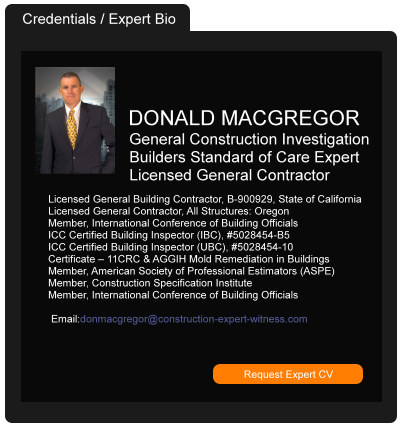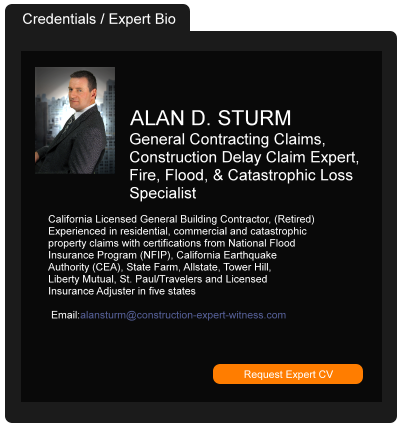Not so Fast – Florida’s Legislature Overrules Gindel’s Pre-Suit Notice/Tolling Decision Related to the Construction Defect Statute of Repose
May 11, 2020 —
Rahul Gogineni - The Subrogation StrategistAs discussed in a prior blog post, in Gindel v. Centex Homes, 2018 Fla.App. LEXIS 13019, Florida’s Fourth District Court of Appeal held that when the plaintiffs provided a pre-suit notice in compliance with §558.004 of Florida’s construction defect Right-to-Cure statute, Fla. Stat. §§ 558.001 to 558.005, et. seq., they commenced a “civil action or proceeding,” i.e. an “action,” within the meaning of Florida’s construction defect Statute of Repose, Florida Statue § 95.11(3)(c). Thus, the court held that the plaintiffs commenced their action prior to the time Florida’s 10-year statute of repose period ended. In overturning the lower court’s dismissal of the action, the court found that because the Right-to-Cure statute, §558 of the Florida Statutes, sets out a series of mandatory steps that must be taken prior to bringing a judicial action, filing pre-suit notice of claim sufficiently constituted an “action” for purposes of Florida’s Statute of Repose.
For various reasons, the parties appealed the decision to the Supreme Court of Florida. In July of 2019, before the Florida Supreme Court could decide whether to hear the case, the Florida legislature passed legislation that effectively overruled the decision. To overrule the decision, the Florida Legislature modified § 558.004 of Florida’s Right-to-Cure statute to expressly state that a notice of claim served pursuant to the Right-to-Cure statute does not toll the 10-year statute of repose period for construction claims. See Fla. Stat.
§ 558.004(d).
Read the court decisionRead the full story...Reprinted courtesy of
Rahul Gogineni, White and Williams LLPMr. Gogineni may be contacted at
goginenir@whiteandwilliams.com
Alarm Cries Wolf in California Case Involving Privette Doctrine
May 06, 2019 —
Garret Murai - California Construction Law BlogIt’s one of the most quoted phrases in legal history: “Shouting fire in a [crowded] theater.”
It comes from the U.S. Supreme Court’s landmark 1919 decision in Schenck v. U.S. and has come to stand for the proposition that not all speech, in particular dangerous speech, is protected by the First Amendment.
The next case also involves a false alarm. But not of the First Amendment kind.
In Johnson v. The Raytheon Company, Inc., California Court of Appeal for the Second District, Case No. B281411 (March 8, 2019), a false alarm investigated by maintenance engineering staff led to a Privette Doctrine claim against a property owner when a ladder on which the maintenance staff was standing slipped on wet flooring.
Johnson v. Raytheon
Lawrence Johnson worked as a maintenance engineer for ABM Facilities Services, Inc. ABM was hired by Raytheon Company, Inc. to staff the control room at one of Raytheon’s facilities in Southern California. Among other things, control room staff monitored water cooling towers owned by Raytheon to ensure that the water in the cooling towers were maintained at minimum levels.
Read the court decisionRead the full story...Reprinted courtesy of
Garret Murai, Wendel, Rosen, Black & Dean LLPMr. Murai may be contacted at
gmurai@wendel.com
"Your Work" Exclusion Bars Coverage
July 06, 2020 —
Tred R. Eyerly - Insurance Law HawaiiAlthough the appellate court agreed there was property damage caused by an occurrence, the "your work" exclusion barred the insured contractor's claim. King's Cove Marina, LLC v. Lambert Commercial Construction. LLC, 2019 Minn. App. LEXIS 389 (Minn. Ct. App. Dec. 16, 2019).
King's Cover Marina sought to expand and remodel its main building. The marina hired Lambert to perform the remodeling project. Lambert hired Roehl Construction, Inc. as a subcontractor to install new concrete footings on the main level of the building and to provide concrete for the second-level mezzanine floor.
After completion, the marina sued Lambert for breach of contract and negligence. The marina alleged that the concrete floors on the first and second levels were not constructed in accordance with industry standards or with project plans and specifications, resulting in excessive movement and cracking of the new concrete floors. Lambert tendered its defense to its insurer, United Fire & Casualty Company. United Fire defended under a reservation of rights and later sued Lambert for declaratory judgment.
Read the court decisionRead the full story...Reprinted courtesy of
Tred R. Eyerly, Damon Key Leong Kupchak HastertMr. Eyerly may be contacted at
te@hawaiilawyer.com
One Way Arbitration Provisions are Enforceable in Virginia
October 07, 2019 —
Christopher G. Hill - Construction Law MusingsHere at Construction Law Musings, I’ve discussed arbitration clauses (pros and cons) as well as the fact that in our fair Commonwealth, contracts are enforced as written (for better or worse). A case out of the Eastern District of Virginia takes both of these observations and uses them to make it’s decision.
In United States ex rel. Harbor Constr. Co. v. T.H.R. Enters., the Newport News Division of the Eastern District of Virginia federal court considered the following provision and it’s enforceability:
At CONTRACTOR’s sole election, any and all disputes arising in any way or related in any way or manner to this Agreement may be decided by mediation, arbitration or other alternative dispute resolution proceedings as chosen by CONTRACTOR…. The remedy shall be SUBCONTRACTOR’s sole and exclusive remedy in lieu of any claim against CONTRACTOR’s bonding company pursuant to the terms of any bond or any other procedure or law, regardless of the outcome of the claim. The parties further agree that all disputes under this Subcontract shall be determined and interpreted pursuant to the laws of the Commonwealth of Virginia….
This provision was the crux of the argument made by T. H. R., the Defendant, in making a motion to dismiss or stay the lawsuit for payment filed by Harbor Construction. As background, Harbor Construction contracted with T. H. R. to perform work at Langley Air Force Base. Alleging non-payment of approximately $250,000.00, Harbor filed a complaint with three counts, one under the Federal Miller Act, one for breach of contract, and a third for unjust enrichment.
Read the court decisionRead the full story...Reprinted courtesy of
The Law Office of Christopher G. HillMr. Hill may be contacted at
chrisghill@constructionlawva.com
Contractor Sued for Contract Fraud by Government
December 11, 2013 —
CDJ STAFFA Canton, Ohio construction company, TAB Construction, has been sued by the federal government over claims that the company lied about its location in order to receive contracts from the U.S. government. According to the suit, TAB received about $13 million for contracts with the U.S. Army Corps of Engineers. The firm had gained the contracts through a Small Business Administration program that allowed firms in certain areas to compete for contracts, however, the firm was not located in the appropriate area.
When the SBA found that TAB was not doing business out of an address that qualified for the SBA’s HUBZone program, the company claimed to be working from another address that qualified. Upon investigation, the SBA found this also was not true.
Read the court decisionRead the full story...Reprinted courtesy of
Mind Over Matter: Court Finds Expert Opinion Based on NFPA 921 Reliable Despite Absence of Physical Testing
September 12, 2022 —
Gus Sara - The Subrogation StrategistIn Smith v. Spectrum Brands, Inc., 2022 U.S. Dist. LEXIS 142262, the United States District Court for the Eastern District of Pennsylvania (District Court) considered whether the plaintiffs’ liability expert met the requirements of Rule 702 of the Federal Rules of Evidence and could testify that a filter pump for an aquarium tank was defectively designed and caused a fire at the plaintiffs’ home. The defendant filed a motion to exclude the plaintiffs’ liability expert on grounds that the expert’s opinion did not satisfy the reliability element of Rule 702 because the expert never conducted physical testing on the filter pump. The court found that the cognitive testing employed by the expert through various methods, including visual inspections of the evidence, a review of photographs of the scene and literature from the manufacturer, and research on similar products, was sufficiently reliable to admit his opinion.
The Smith case involved a civil action brought by Jeanette Scicchitano Smith and Alexander Smith that arose from a 2019 fire at their residence in Lincoln University, Pennsylvania. The fire purportedly started in a filter pump, which was operating at the time of the fire, that the plaintiffs purchased in 2002 as part of an aquarium tank kit.
Read the court decisionRead the full story...Reprinted courtesy of
Gus Sara, White and WilliamsMr. Sara may be contacted at
sarag@whiteandwilliams.com
California Ballot Initiative Seeks to Repeal Infrastructure Funding Bill
September 25, 2018 —
Garret Murai - California Construction Law BlogCalifornia voters will get to vote on November 6, 2018 on a ballot initiative to repeal an infrastructure funding bill signed by Governor Brown this past year that is estimated to raise more than $5 billion annually during the next ten years for road repairs and mass transit improvements in California.
In 2017, Governor Brown signed Senate Bill 1, the Road Repair and Accountability Act of 2017, which increased the excise tax on gasoline in the state by 12 cents per gallon, to 30 cents per gallon, and increasing vehicle registration fees from $25 to $175 dollars depending on the value of the vehicle. The last time the state’s gas tax was increased was in 1994 and the last time the federal gas tax was increased was in 1993.
Read the court decisionRead the full story...Reprinted courtesy of
Garret Murai, Wendel, Rosen, Black & Dean LLPMr. Murai may be contacted at
gmurai@wendel.com
The BUILDCHAIN Project Enhances Data Exchange and Transparency in the EU Construction Industry
January 23, 2023 —
Aarni Heiskanen - AEC BusinessTrace Labs, a WEB 3 developer, joins the EU’s efforts to create a smarter and more sustainable built environment with the
BUILDCHAIN project. With its 11 EU partners, Trace Labs aims to improve efficiency, reduce errors, and increase transparency and trust in construction.
Efficient, transparent, and trusted data exchange is a powerful tool for driving sustainability, resilience, and energy efficiency in construction. However, there are several obstacles to trusted data exchange in the industry today:
- Data silos: Construction projects involve multiple parties and stakeholders, each of which may have its systems for storing and sharing information. This can lead to data silos and a lack of coordination, making it difficult to access and trust the data.
- Lack of standardization: Construction projects may use different formats for storing and sharing data, leading to difficulties in comparing and combining information from various projects.
- Data security: Construction projects often involve sensitive information, such as building plans, materials lists, and inspection results. Ensuring this information is secure and protected from unauthorized access can be a significant challenge.
- Lack of incentives: There are often few incentives for construction companies and other stakeholders to share data and collaborate on projects, making establishing trust and transparency challenging.
Read the court decisionRead the full story...Reprinted courtesy of
Aarni Heiskanen, AEC BusinessMr. Heiskanen may be contacted at
aec-business@aepartners.fi


































































